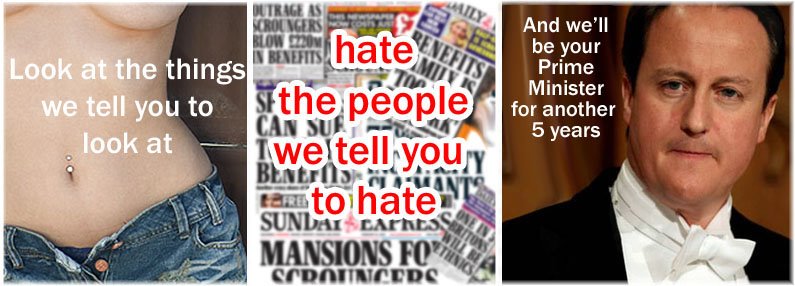
Universal Credit call handlers working at centres in Wolverhampton and Walsall have overwhelmingly voted in favour of strike action, accusing the Department for Work and Pensions (DWP) of treating them with “utter contempt”.
A ballot of PCS members working for the DWP on it’s highly controversial programme was announced earlier this month, warning of “severe under investment, staff shortages and ironically, criticism from claimants on how they are treated”. They also want full contracts for fixed-term workers, and an end to “management by statistics.”
Speaking ahead of the vote, PCS General Secretary Mark Serwotka challenged assumptions by government ministers that “Universal Credit is working well for workers and claimants”, instead arguing that “the opposite is in fact the case”.
He said that is was clear the DWP “want to run this service into the ground”, but the DWP insisted its “top priority remains assessing and making payments to customers”.
PCS and its members are calling on the DWP to hire 5,000 new staff, full contracts for fixed-term workers, and a reduction in the number of calls from Universal Credit claimants each case manager is required to handle.
Commenting on the result of the ballot, Serwotka said: “The message from our members is clear – changes need to be made otherwise they will walkout for two consecutive days.
This will mean that approximately 274 call handlers who work at the two offices will walk out for 48 hours starting on 11 March, after 90% of those balloted by the Public and Commercial Services (PCS) union backed industrial action.
Serwotka added: “The union has tried to negotiate for months but to no avail. Ministers have stuck their heads in the sand and our members are now sending them a very loud wakeup call.
“PCS members have not taken the decision to strike lightly but the fact is industrial relations have broken down because ministers seem intent on running this service into the ground while treating staff with utter contempt.”
Margaret Greenwood MP, Labour’s Shadow Work and Pensions Secretary, said: “It is shocking that staff working in DWP offices are feeling so stressed through overwork that they are going on strike and calling for the government to recruit more staff.
“Not only is the government’s flagship social security policy Universal Credit failing claimants, the government is also failing the DWP staff who work so hard.
“Labour will deliver a social security system that treats those in need and the people who are employed to support them with respect.”
A DWP spokesperson said: “This result is disappointing, we greatly value the work that our colleagues do and our top priority remains assessing and making payments to customers.
“We are comfortable with current staffing levels and will monitor and reallocate resource where necessary.
“Contingencies are underway to ensure the smooth running of our services to minimise any impact.
“We urge PCS to seek to resolve this through further dialogue.”
Serwotka said: “The union has tried to negotiate for months but to no avail.
“Ministers have stuck their heads in the sand and our members are now sending them a very loud wakeup call.
“PCS members have not taken the decision to strike lightly.
“But the fact is industrial relations have broken down because ministers seem intent on running this service into the ground while treating staff with utter contempt.”
Four years ago, 1,300 Universal Credit staff staged a 48-hour walkout in protest of the “oppressive” workplace culture.
DWP workers complained of staff shortages, poor training and at least £40m ‘squandered’ on IT that wasn’t used.
However, there was no complaint made about the intentionally cruel policies being implemented by the DWP, which troubles me a lot.
Some thoughts: government policy, structural violence and the Milgram experiment framework

One of the most famous and controversial studies of obedience in psychology was carried out by Stanley Milgram in 1963, he was a psychologist at Yale University. He conducted an experiment which explored the conflict between obedience to authority and personal conscience. Milgram examined justifications for acts of genocide offered by those accused at the World War II, Nuremberg War Criminal trials. Their defence was often based on “obedience” – that they were just following orders from their superiors.
The experimental procedure was that the participant was paired with another person and they drew lots to find out who would be the ‘learner’ and who would be the ‘teacher.’ However, the draw was fixed so that the participant was always the ‘teacher’, and the ‘learner’ was one of Milgram’s confederates (and actor pretending to be a real participant).
The ‘learner’ (a confederate called Mr. Wallace) was taken into a room and had electrodes attached to his arms, and the ‘teacher’ and researcher (there was also an “experimenter” dressed in a grey lab coat, played by an actor – not Milgram) went into a room next door that contained an electric shock generator and a row of switches marked from 15 volts (Slight Shock) to 375 volts (Danger: Severe Shock) to 450 volts (XXX).
Milgram was interested in researching how far people would go in obeying an instruction if it involved harming another person, and how easily ordinary people could be influenced into committing atrocities.
Two rooms in the Yale Interaction Laboratory were used – one for the ‘learner’ (with an electric chair) and another for the ‘teacher’ and experimenter with an electric shock generator. The ‘learner’ (Mr. Wallace) was strapped to a chair with electrodes. After he has learned a list of word pairs, the ‘teacher’ then tested him by naming a word and asking the ‘learner’ to recall its partner/pair from a list of four possible choices. For the purpose of the experiment, Mr Wallace gave the wrong answers deliberately.
The punitive shocks were administered at an increasing voltage each time the ‘learner’ made a mistake. There were 30 switches on the shock generator (pictured above) marked from 15 volts (slight shock) to 450 (danger – severe shock).
Milgram wanted to know whether people would administer what they believed to be fatal shocks to another person under the pressure of an authority figure.
Some of the teachers protested as the authority figure gave the orders to continue — which began with “please continue” or “please go on” and increased in severity to “you have no other choice, you must go on.”
Other subjects were detached and methodical, not protesting even as the learner screamed from the other room, ostensibly from the extremely painful shocks.
65% (two-thirds) of participants (‘teachers’) continued to the highest level of 450 volts. All the participants continued to 300 volts.
Mr Wallace was a convincing actor who shrieked in pain and begged for the shocks to stop. All of participants believed the shocks they administered were real.
They weren’t.
Participants in the experiment were also told that researchers know a good deal about how positive reinforcement improves learning, but they know very little about how punishment improves learning. This was the ‘front’ for the purpose of the study.
Milgram’s pessimistic conclusion was that ordinary people are likely to follow orders given by an authority figure, even to the extent of killing an innocent human being. Obedience to authority is ingrained in us all from the way we are brought up.
People tend to obey orders from other people if they believe their authority is morally right and/or legally based. This response to legitimate authority is learned in a variety of situations, for example in the family, school, and workplace.
The government’s welfare policies place emphasis on citizen ‘learning’, compliance and obedience to authority. The Conservatives’ distorted and prejudiced views about social security claimants have resulted in technocratic attitude and ‘behavioural change’ programmes – a pseudoscientific behaviourist approach – which is embedded in extremely punitive and oppressive policy and DWP practices. The government’s coercive and behaviourist methods of achieving their aim has resulted in a class related and particularly vindictive form of structural violence.
The politically orchestrated hierarchical organisation and institutionalisation of structural violence has recently reminded me of the Milgram experiment.
Structural violence

The government’s antiwelfarist ideology has resulted in structural violence being institutionalised, administrated and imposed on targeted groups of society, namely the poorest citizens. From the top down, this culture of inflicting harm on certain groups has become routinised and normalised. It’s hidden in plain view.
However, the key difference between the experiment and current punitive practices within the DWP – such as sanctions – is that the harm inflicted in the former was not real. The punishments inflicted by the DWP are very real and are having catastrophic consequences on some groups of citizens, ranging from hunger and fuel poverty to destitution, rough sleeping and even death.
In a few years it has become acceptable to threaten people who are already on the breadline with the removal of their lifeline support, leaving them without the means to meet their most basic survival needs – food fuel and shelter.
According to Norwegian sociologist, Johan Galtung, structural violence is an “avoidable impairment of fundamental human needs”. As it is avoidable, structural violence is a high cause of premature death and unnecessary disability. Because structural violence affects people differently in various social structures or groups, it is very closely linked with inequality, social injustice and oppression.
A major contributing factor to the increase the ‘culture of workplace oppression’ is the collective behaviours of the current government, which has perpetuated, permitted and endorsed prejudices against marginalised social groups, such as disabled and unemployed citizens, with a complicit media amplifying these prejudices.
Because the Conservatives’ policies embed such a deeply punitive approach towards the poorest social groups, this in turn means that those administering the policies, such as staff at the DWP and job centres, for example, are also bound by punitive, authoritarian behaviours directed at the targeted group.
As authority figures and role models, their behaviours establish a normative framework of acceptability. Parliamentary debates are conducted by the Conservatives with a clear basis of one-upmanship, lies and aggression, rather than being founded on rational exchange. Indeed, ministers frequently sneer at rationality and do not engage in a democratic dialogue, instead they employ the tactics of a bully: denial, gaslighting, scapegoating, vilification, attempts at discrediting, smearing and character assassinations.
This in turn pushes moral and normative boundaries and gives wider society permission and approval to behave the same.
Studies of power, and obedience to authority provide an interesting paradigm in psychology, sociology, social psychology, political science, and obviously within organisational behaviours.
Scapegoating groups of citizens has a wide range of focus: from ‘approved’ enemies of very large groups of people (such as the mythologically discrete group known vaguely as the ‘tax payer’) down to the scapegoating of individuals by other individuals.
The scapegoater’s target always experiences a terrible sense of their personal accounts of experiences being edited and re-written, with the inadequacies of the perpetrator often inserted into public accounts of their character (projection), resulting in isolation, ostracism, exclusion and sometimes, expulsion and elimination. The sense of isolation is often heightened by other people’s reluctance to become involved in challenging bullies, usually because of a bystander’s own discomfort and fear of reprisal.
Many of the participants in Milgram’s experiment said they acted as they did, not because they were committed to the experimenter or to science, but because they trusted the experimenter not to let them inflict serious harm.
The call handlers who voted to go on strike complain of “severe under investment, staff shortages and criticism from claimants on how they are treated”. They also mention a culture of oppression. Perhaps they believe they are administering harmless policies, and that their own stresses are simply down to severe under-staffing, “management by numbers”, mismanagement of IT projects and ‘complaints’ from claimants. But the call handlers are not those who are being targeted with political ‘contempt’.
I was shocked that the DWP call handlers complained of “criticism from claimants on how they are treated”, rather than criticising how claimants are being actually being treated.
Authority bias is the tendency to obey the orders of authority figures, even when you strongly believe that there is something wrong with those orders. During the Milgram experiment, participants could indicate at any point that they wished to stop. Most didn’t.
At any point during the experiment, participants could indicate that they wish to stop. Any time this happened, the experimenter would tell the subject the following things, in order using an authoritative tone:
Please continue.
The experiment requires that you continue.
It is absolutely essential that you continue.
You have no other choice, you must go on.
If, after saying all four lines, the subject still refused to carry on with the experiment, then the experiment was stopped.
I’m bitterly disappointed that both the workers themselves and the union fail to recognise the part those workers play within a hierarchy of power that is instrumental in inflicting structural violence on people claiming social security – those who have no negotiating power to change their circumstances whatsoever.
It’s time to stop the experiment now.
I don’t make any money from my work. I am struggling to get by, like many other ill and disabled people. But if you like, you can contribute by making a donation and help me continue to research and write informative, insightful and independent articles, and to provide support to others going through the disability assessment process, mandatory review and appeals. The smallest amount is much appreciated – thank you.











